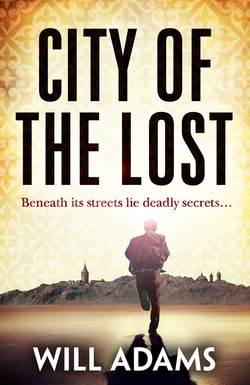Читать книгу City of the Lost - Will Adams - Страница 26
II
ОглавлениеThe reports on Global Analysis and Iain Black had arrived from London during the night. Michel Bejjani printed out copies for his father and brother to digest along with their breakfast. He handed Georges his with a certain satisfaction then scooped up a generous dollop of tahini with a strip of pita bread and gestured for some coffee.
Until recently, there’d been no question about his and Georges’ respective futures within the Bejjani Group. Michel didn’t just have seniority, a Cambridge degree and a Harvard MBA, he also had the look, temperament and connections of a top international financier. All Georges had, by contrast, was a certain innate shrewdness and a bullish forcefulness that together suited him perfectly for security and the like. It was humiliating, therefore, that there was any question about the succession, but his father had the old-fashioned attitude that a company leader should be able to handle all aspects of the business. That was why Michel had been on the lookout for a way to dent Georges’ reputation in such matters; and this man Black was his opportunity.
The report on Global Analysis was extensive. It included its latest balance sheet and accounts, its scope of operations, key clients and an executive summary that portrayed a company with a once-stellar reputation now hit by rumours of cash-flow problems, perhaps on account of an ill-fated joint venture between the founder-owner Quentin Oliver and a shady Uzbek oligarch.
The report on Iain Black was even more detailed. By happy chance, Black had sent his CV to all the leading business intelligence companies a couple of years before, including RGS, the agency the Bejjanis sometimes used. Black had ultimately opted to join Global Analysis, but in the meantime RGS had been interested enough to commission a head-hunter’s report, which they’d kept on file. It included eight photographs of him, both by himself and in company. They showed a tall, powerfully built man in his early thirties; and with a certain presence, to judge from the way other people arrayed themselves around him.
His British father and Jordanian mother had met while working on a pipeline project outside Amman. They’d later worked together on similar projects in Turkey, Pakistan, Egypt and elsewhere, giving Black a suite of useful languages, a comfort with exotic places and – thanks to his mother’s genes – a valuable ability to pass for native in most Middle-Eastern countries. Back in England for his teens, joining the army out of school, serving with distinction in Afghanistan and Iraq. But then suddenly his file went dark. His records for his last seven years were classified, and the head-hunters had had to make do with unconfirmed reports of secondment to a shadowy military intelligence unit running special ops across the region, from Pakistan to Iran, Somalia and Libya.
Michel watched with satisfaction his father’s eyebrows rising as he read, and the finger Georges tugged inside his collar. He didn’t wait for them to finish, therefore, but said instead: ‘We need to call this morning off. It’s not fair to expect Georges to take on a man like this.’
‘What are you talking about?’ scowled Georges.
Michel turned to Butros. ‘I’m the first to acknowledge what a fine job Georges does running security, Father. But we need to be realistic. We’re bankers, not men of war.’
‘This is ridiculous,’ said Georges. ‘He’s one man. I’ll have Sami and Faisal and the whole crew with me. We can take him easily, I assure you.’
Their father held up a finger for silence. He thought for half a minute or so then turned to Georges. ‘Your brother is right,’ he said. ‘This isn’t a job for you.’
‘But, Father—’
‘This is a job for him.’
Michel’s smile grew a little strained. ‘With respect, Father, that wasn’t what I meant. What I meant was—’
‘I know what you meant. But you’ve been assuring me that Mexico was a one-off. It’s time for you to prove that.’
Silence fell. It was Georges’ turn to smile. Michel felt a sudden unwelcome squishing in his gut, but he knew better than to let it show. ‘And so I will, Father,’ he said. ‘And so I will.’
